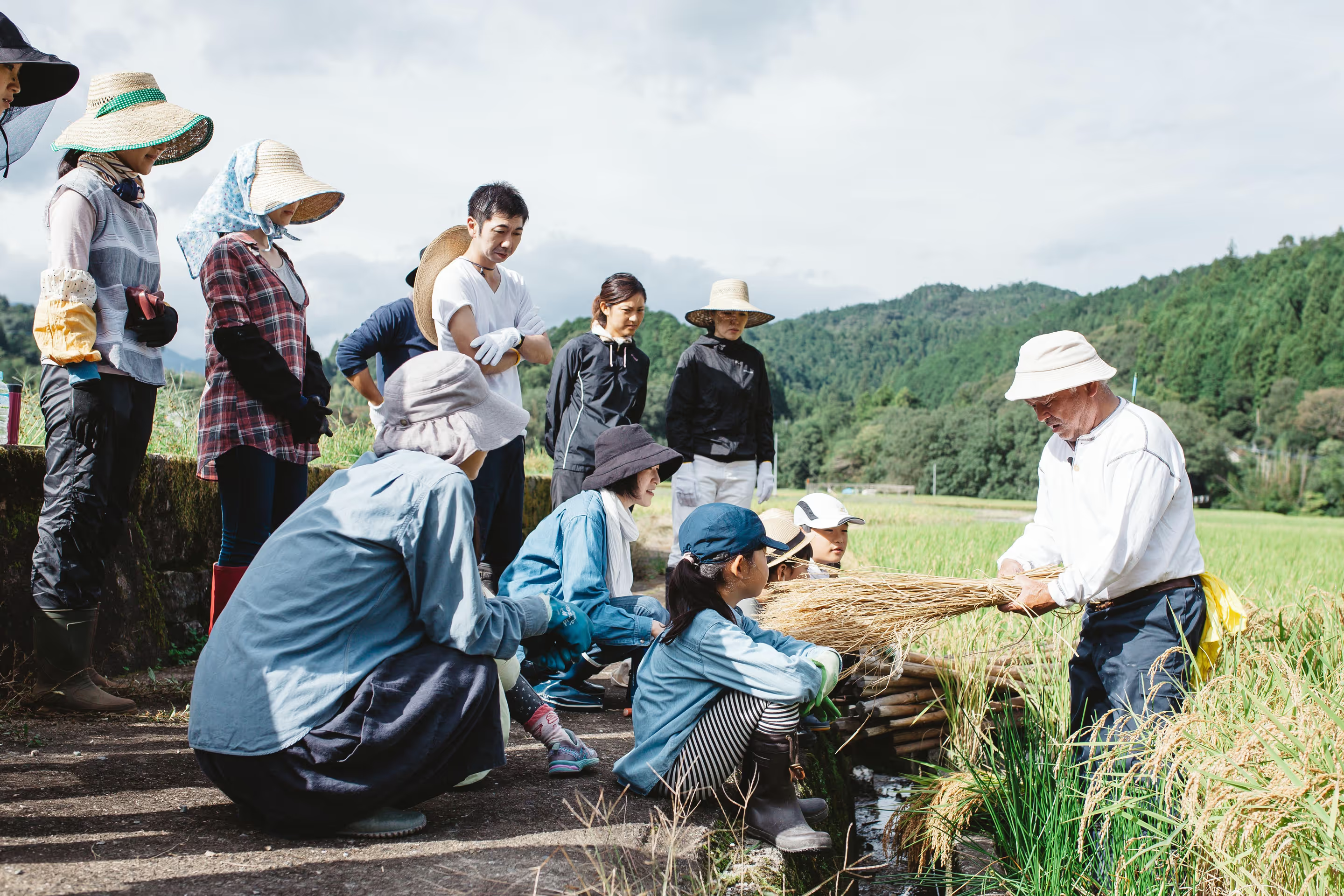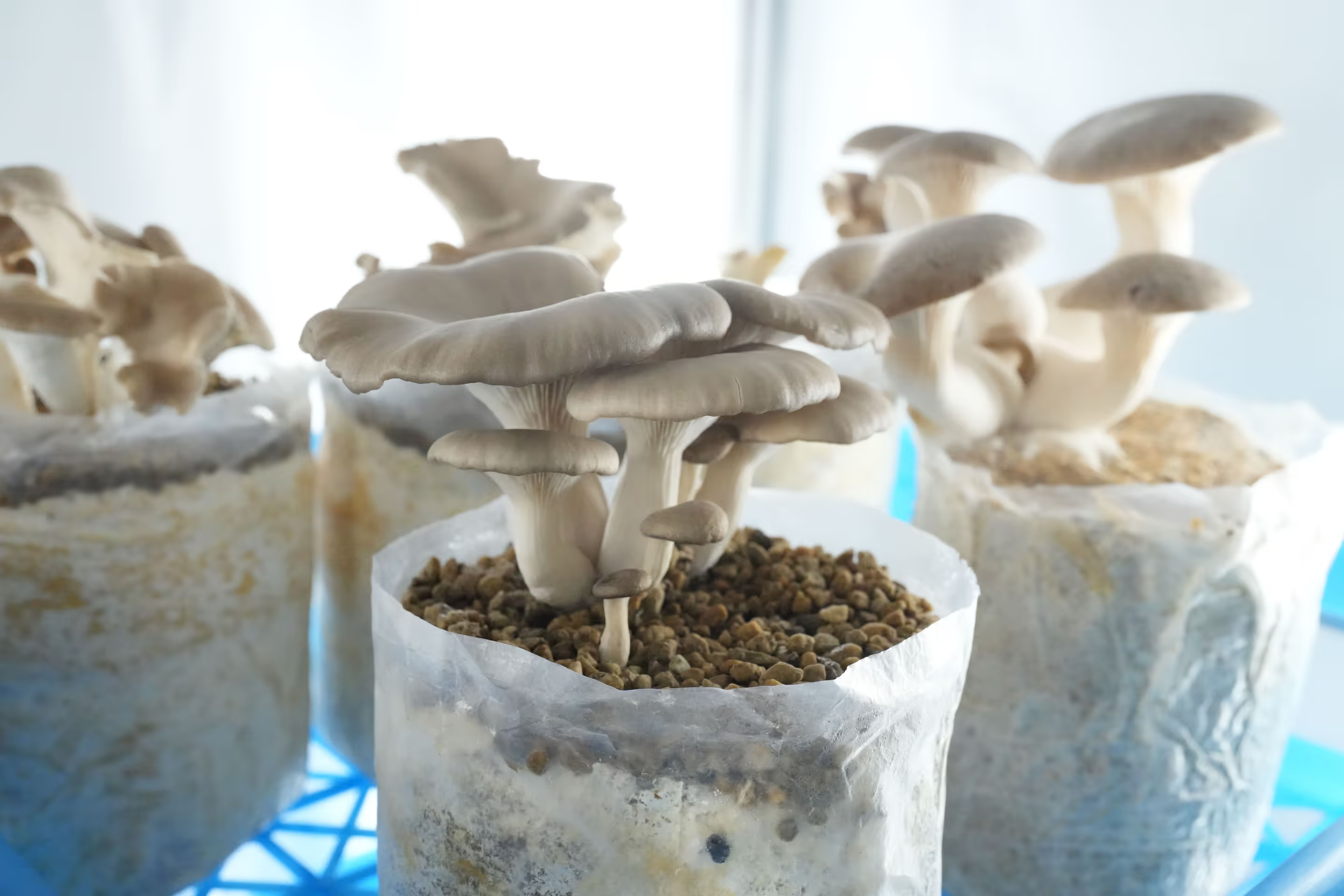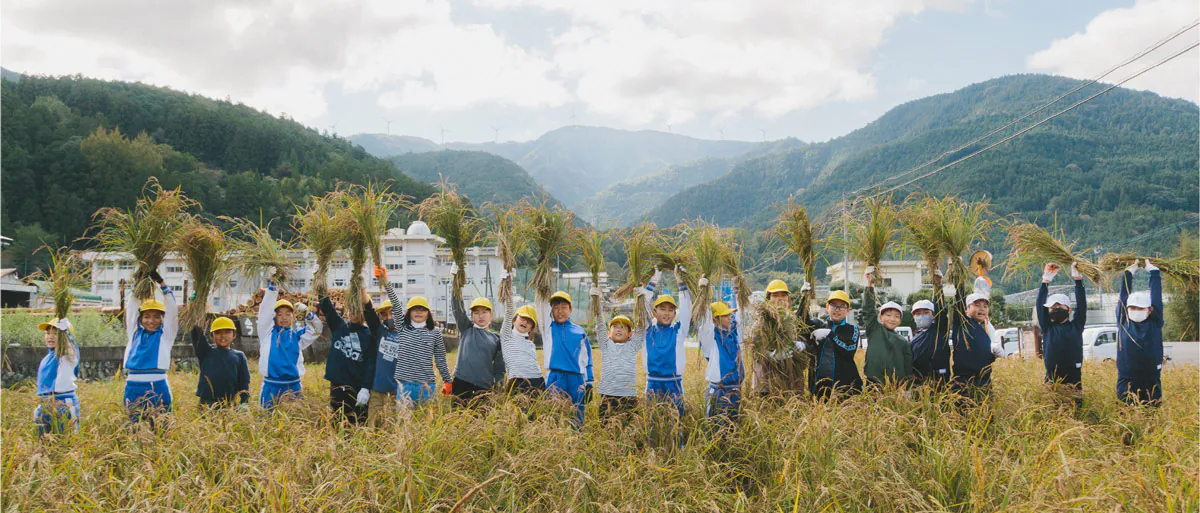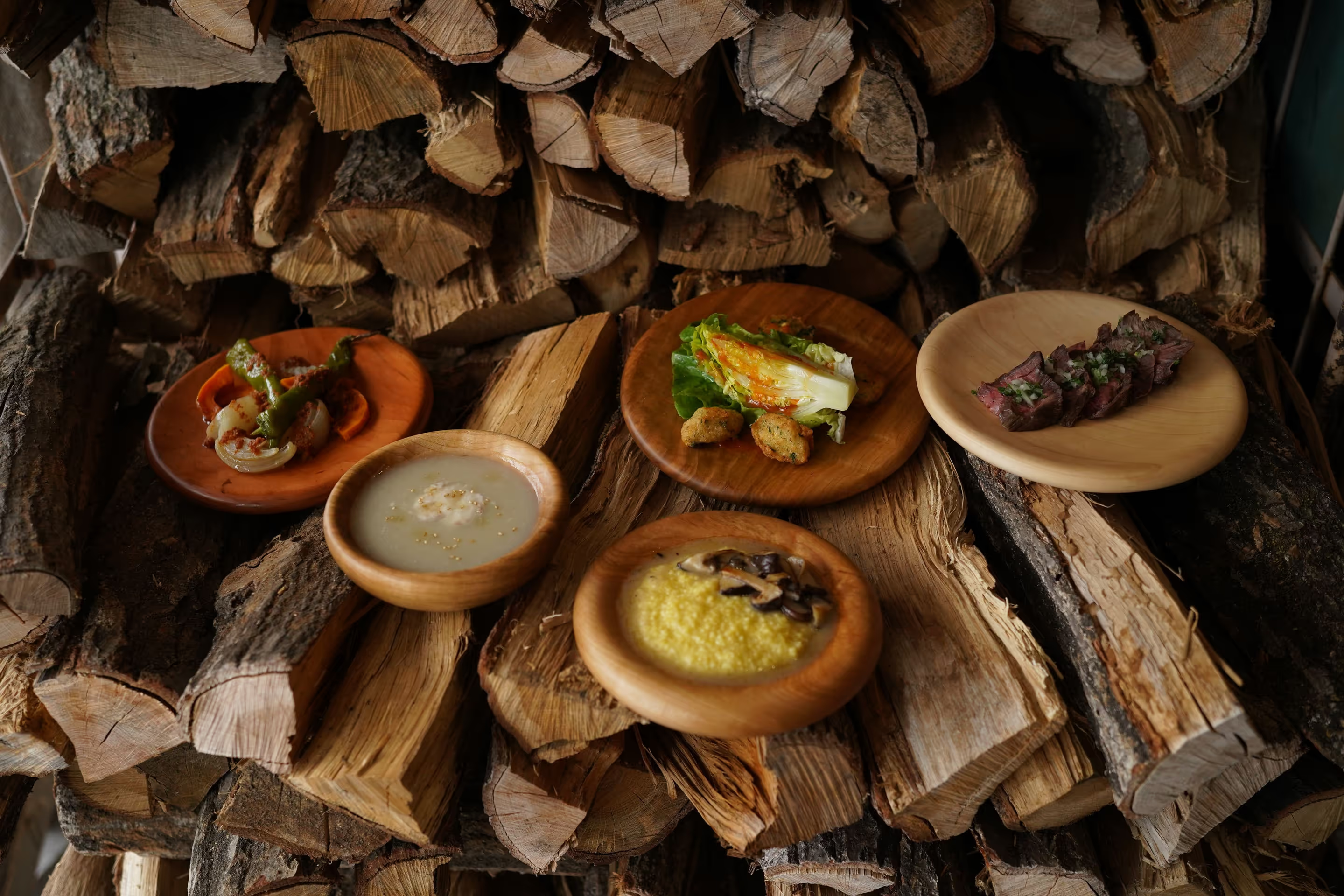ソーシャルグッド
モノサスはWeb、食や農業など、さまざまな領域でものづくりをしています。先進性だけでなく手触り感のあるものづくりを通して、社会とのつながりを問い続けています。
Food Hub Project


地域の農業と食文化を次の世代につないでいくため、神山町役場と神山つなぐ公社、モノサスが共同で立ち上げたフードハブ・プロジェクト。 単なる農業や飲食業に留まらない、地域の農業問題の解決・食文化の継承・雇用創出・移住促進・コミュニティの活性化・次世代教育など関係会社とも連携し、幅広い範囲での地域社会の課題解決を担っています。
もっとみるKINOKO SOCIAL CLUB


KINOKO SOCIAL CLUB (キノコソシアルクラブ)は、都心で多く出る有機廃棄物の一つであるコーヒーかすを活用し、キノコを東京の真ん中で「育て、 食べ、 学ぶ」場所。キノコを通じて都市のフードシステム、循環型社会についてみんなで一緒に考えるコミュニティスペースです。 都市を消費地から生産地へシフトさせ、食の力で、都市におけるコミュニティ形成にも役立つ仕組みを清澄白河に住む人、働く人とともにつくることを目指しています。
Webサイトをみるまちの食農教育


土に触れ、食べるものを育て、つくる経験を重ね、日常の食を通して楽しみながら学ぶ。そんな子どもたちの環境を当たり前にしたいという想いからはじまったNPO法人「まちの食農教育」。発起人はフードハブ・プロジェクトの立ち上げメンバーで、食育の活動を続けてきた樋口明日香さん。徳島県神山町の保小中高校を中心にその活動を広げて、フォーラムの開催や食農プログラムを実践する人たちの育成などにも取り組んでいます。
WebサイトをみるCIMI restorant


バランスを崩した地球を回復させるために、これから私たちは、どう育てられた食材を、どう料理してゆけばよいのだろう。それを考え、みなさんとシェアしていく活動がCIMI restorantです。 CIMI(ちみ)は、日本語で「地味」と書きます。その土地土地の風景を思わせる味、身体に沁みわたるような滋味、などとその意味を広げることもできるでしょう。私たちの庭を大切にケアしてくれている生産者の方々との繋がりを深めながら、風を、雨を、季節を感じ、CIMIが思うおいしさを届けていきます。
Webサイトをみる